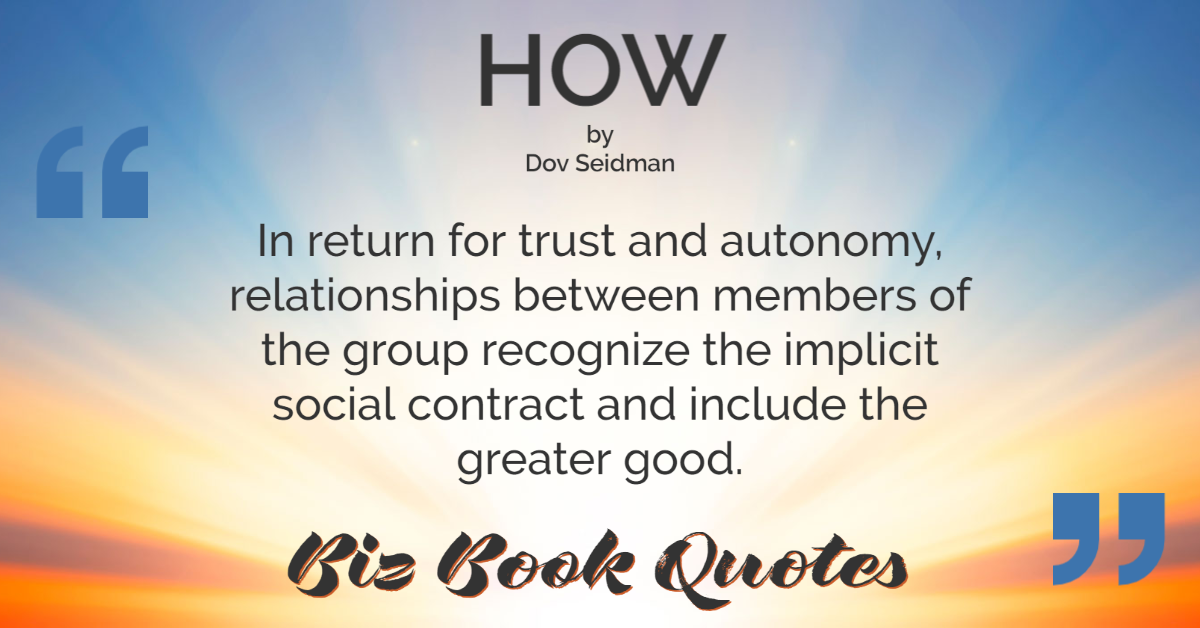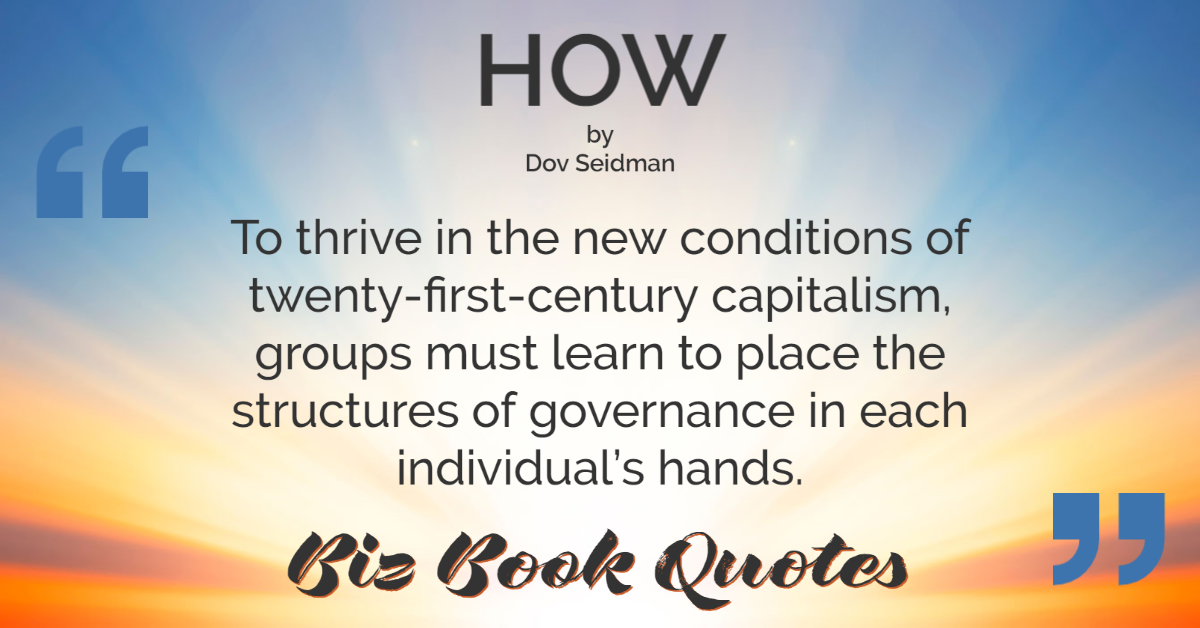|

|
How:
In return for trust and autonomy, relationships between members of the group recognize the implicit social contract and include the greater good.
|
235 |
|

|
How:
Self-governing cultures coalesce around mission, promise, and the pursuit of significance, a journey that is, in many ways, its own reward.
|
239 |
|

|
How:
To thrive in the new conditions of twenty-first-century capitalism, groups must learn to place the structures of governance in each individual’s hands.
|
242 |
|

|
How:
As we move forward into an ever more transparent world, culture – the character of an organization – is now everyone’s responsibility.
|
244 |
|

|
How:
Winning today requires surpassing expectations because great companies don’t just fulfill contracts; they exceed them. They outbehave the competition.
|
245 |
|

|
How:
…the best leader is the best server. And if you’re a servant, by definition you’re not controlling.
|
247 |
|

|
How:
Streamlining authority and putting information and decision making in the hands of those closest to the challenge make a team nimble and responsive, two qualities critical to thriving in a fast-moving market.
|
251 |
|

|
How:
…self-governance holds the key to the next great leap in corporate efficiency: It closes the gap between the individual and the company.
|
251 |
|

|
How:
Through culture, companies have the opportunity to grow more varied and diverse while simultaneously remaining tightly aligned in a common purpose.
|
251 |
|

|
How:
There are no hard walls in culture; they are progressive and evolutionary, growing and changing at all times.
|
251 |











